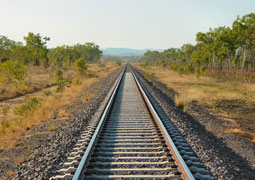
The National Council of Provinces (NCOP) this week held a debate on the restoration and modernisation of rail infrastructure in South Africa: revolutionising our rail services for efficient transportation. The debate was opened by the Minister of Transport, Mr Fikile Mbalula.
He began by admitting that challenges in the railway sector have weakened the efficiency of the system and limited its contribution to economic growth and effective community connections. “Indeed the system is broken … It has been broken by years of deferred maintenance in the 1980s, by years of corruption that was laid bare by the Zondo Commission, by years of ineffective boards that failed to steady the ship and guide it through turbulent waters,” he said.
The Minister pointed out that the De Villiers report of 1986 advocated against new rail investments and instead suggesting exhausting existing assets and deregulating the road sectors. This contributed to a lack of maintenance of rail assets, particularly passenger rail, which resulted in the decline in commuter numbers and deterioration of commuter rail infrastructure over many decades.
“The ANC government took tangible steps to position rail as a backbone of the public transport system by investing R173 billion into the Rolling Stock Fleet Renewal Programme. This was the first time in half a century that the state had made such a significant investment in commuter rail.
He also told the NCOP that the White Paper on National Rail Policy, which was approved by the cabinet in March this year and tabled in Parliament, seeks to give practical expression to the governing party’s policy trajectory. The Minister said the National Rail Policy enabled the country to implement the ambitious policy choices, including radical structural reforms that will bring about competitiveness of the railway system and also enable private sector participation through concessions.
Democratic Alliance Member of Parliament and Permanent Delegate to the NCOP, Mr Tim Brauteseth, accused the Minister of speaking more about policy instead of outlining an actual plan to revitalise the railway network system. “The rail network is bedevilled by years of mismanagement and vandalism which resulted in massive disruption to commuter service. How did we get here? It was through policy dithering and indecisiveness and both the National Party government and the ANC had a role to play in this. And the only way out of this is public private partnership and for rail service to be devolved to capable provinces and municipalities who are able to run these services effectively – again in public private partnerships,” argued Mr Brauteseth.
Mr Thembinkosi Apleni of the Economic Freedom Fighters claimed that South Africa’s rail infrastructure is on the verge of total collapse. He also accused government of failing to prevent vandalism, cable theft and theft from goods containers. “A well-established railway service is strategic to any country, as it provides an efficient and cost effective means of transport. Railway as a transportation system plays a major role in the economic development of a country, as it serves as transport network for industrialisation and economic development. As such the condition of the rail network must always be high priority for government, but it is not the case in our country,” said Mr Apleni.
The Chairperson of the Select Committee on Public Works & Infrastructure, Transport and Public Service & Administration, Mr Kenny Mmoeimang, believes that South Africa has a fairly developed transport system in aviation, road and rail, with all major cities connected by road or rail to the coast for import and export of goods. “However, there is much work to be done and still to be achieved to ensure that the transport sector positively contributes to the economic reconstruction and recovery plan.”
Mr Mmoeimang commended the Passenger Rail Agency of South Africa and the Minister of Transport for the restoration of the Mabopane line in Tshwane and the Central line in Cape Town, which were out of commission for years due to theft and vandalism.
Sakhile Mokoena
12 September 2022

